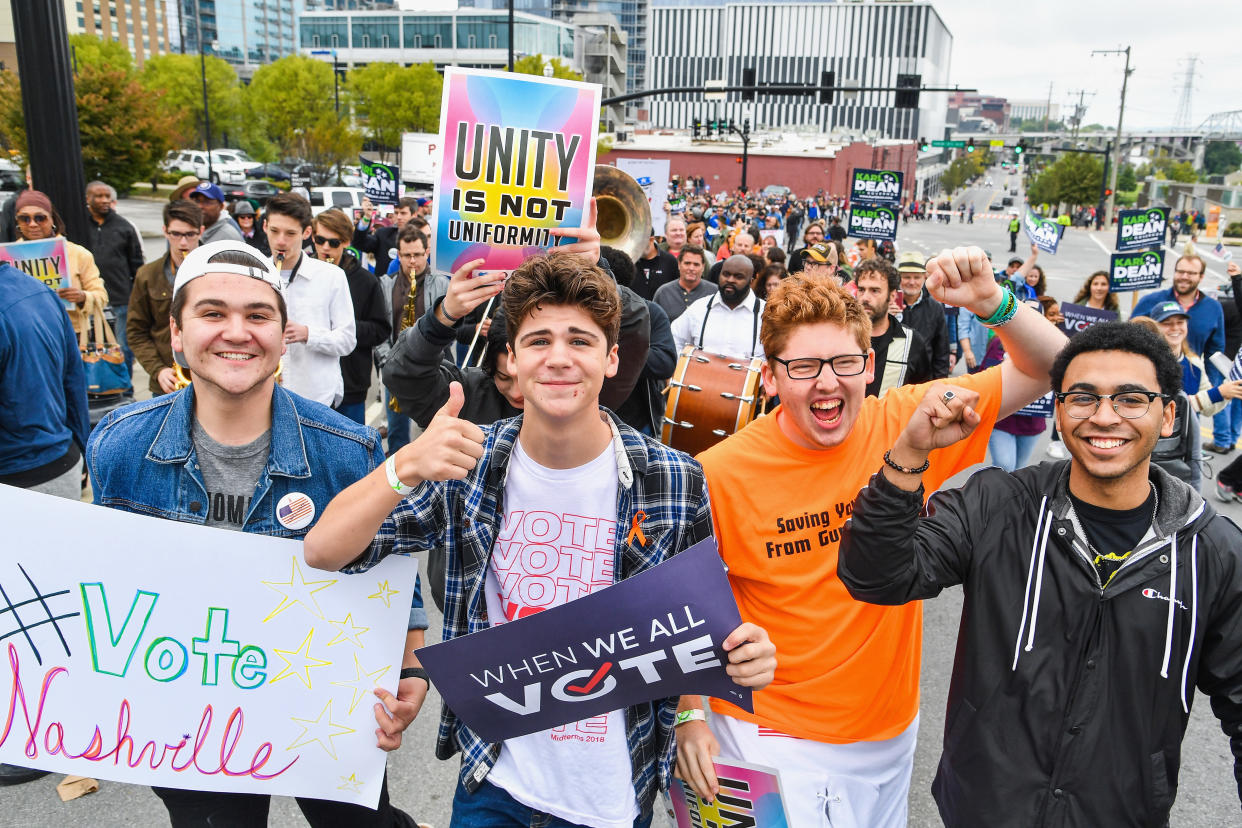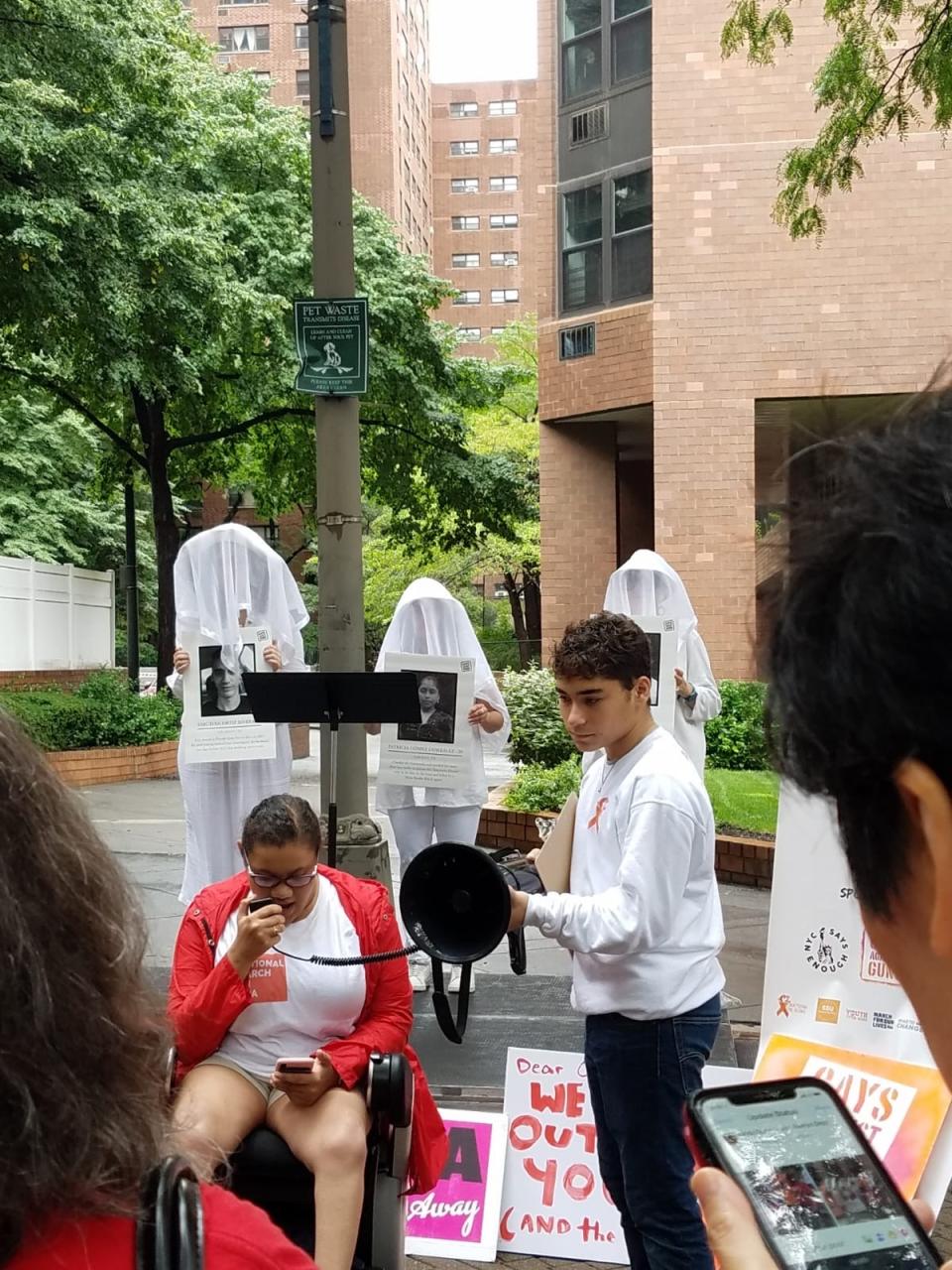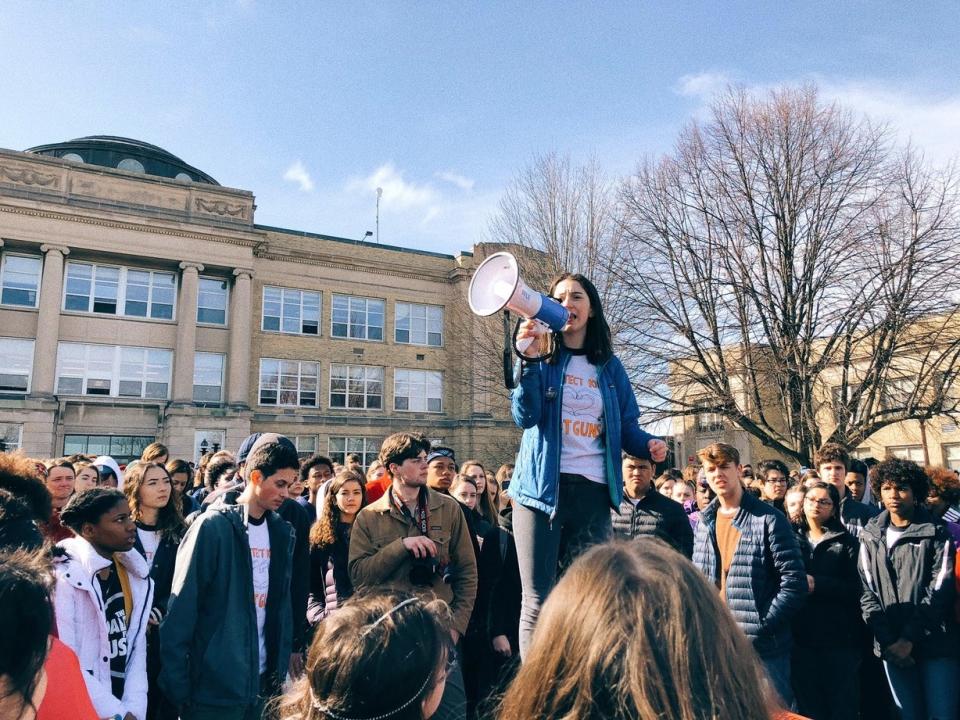Why these millennials are organizing over 500 walkouts to vote: 'This election is ours to win'

“This year has stripped our generation of our innocence, of our youth. We should be sitting at home worrying about our midterm exams and passing classes. We should be worrying about pulling all-nighters because we procrastinated on our classes — not trying to fill the positions of political officials who aren’t doing their job,” says Daphne Frias, a 20-year-old college student at CUNY Oswego who is leading the New York City’s “Walkout to Vote” initiative with Future Coalition.
“This election is ours to win.”
On Nov. 6 at 10 a.m., the youngest individuals in the millennial age bracket are organizing over 500 walkouts in 45 states across the nation to get young people to vote. “We aren’t apathetic; we’re empathetic. We’re going to have record numbers come Tuesday. Adults need to open themselves up to the idea that we have ideas that could change the world,” says Katie Eder, a 19-year-old youth organizer based out of Milwaukee, Wis., who is helping organize walkouts across the country that she hopes will garner “tens of thousands” of young people nationwide.
People say to us “Why do you have to talk about politics?” This is our answer.
A post shared by Walkout To Vote (@futurecoalition) on Nov 5, 2018 at 11:04am PST
According to Pew Research Center, millennials age 18 to 35 are projected to replace baby boomers as the largest generation in the electorate by 2019. Both generations currently hold about 31 percent of the entire electorate. Despite their potential voting power, however, millennials have had the lowest rates of showing up to the voting booth. But Future Coalition, a national network of youth-led organizations, is determined to change that.
“It’s not about left or right. It’s about electing politicians who, in 60 years, will keep our future protected. We want to send a bold message to politicians and the country that young people are unified in our demand for change,” says Eder, who is also the executive director of 50 Miles More, an organization that seeks to “keep the national demand for gun reform going after the March 24 March for Our Lives event.”
While the organizers of Future Coalition may be the youngest eligible voters in the electorate, their call to action is not one that should be taken lightly. Following the death of 17 people in the Marjory Stoneman Douglas High School shooting in February, students organized a walkout in Washington, D.C., on March 24 that they estimate drew 800,000 people.
After seeing the power of young people in numbers on Capitol Hill, the youth organizers are hoping to drive that power to the polls.
Thank you so much @CoryBooker! And it’s not just me! So proud to collaborate with thousands of students across the country who are leading us toward a brighter future 💪💪 @FutureCoalition https://t.co/PIrqUYY3fX
— Katie Eder (@katie_eder) November 5, 2018
If you’re an 18 y/o or a student in college and you have classes Tuesday, then you should WALKOUT TO VOTE.
— Nate Tinbite (@NateTinbite) November 4, 2018
“We saw this growth in this generation taking back control of their country and really wanting to be advocates of what they thought was right,” says Frias. “We understood that we can rally and we can march, but in order to really make change, we have to impact legislation, and the way that you can do that is by voting.”
After seeing the amount of media attention garnered from the March for Our Lives protest, Eder, Frias, and other young activists advocating for progressive causes from climate change to gun control discussed how to leverage their collective voices. “There are all these nuclear organizations doing these great things, which is preventing us from making the biggest impact possible,” says Eder. The brainchild of these youth organizers was Future Coalition, a network with over 25 other youth-led organizations including March for Our Lives, 50 Miles More, Box the Ballot, Women’s March Youth Empower, and more.

“We made this coalition because we are the future of this country. Even though we’re the future, we’re not waiting for tomorrow to create change — we’re creating change right now,” says Frias, who also founded Box the Ballot, a bipartisan initiative that helps college students send in their absentee ballots.
Just five months after the Coalition’s inception, it is organizing walkouts that could garner thousands of students from California to New York to exercise their right to vote, which Frias refers to as young people’s “superpower.”
“We realized that we needed something to organize around as an example around what the youth space could do. We needed something we could all do on our own,” says Eder. Through Walkout to Vote, they hope to show that every election is important, not just the presidential election.

However, there’s more on the line for these youth organizers than just getting their fellow millennials to cast a ballot: They have concrete policies and legislation they want the politicians they elect to enact when they’re in office.
“We’re not just sitting here talking the talk — we’re out here actually writing real legislative change. We know that in order to enact that change we have to put the right people in power,” says Frias. “In a sense, we’re doing their job, so we’re making sure that the people we elect are doing their job as well.”
Eder echoes the sentiment that even after the voting booths close their work is far from finished. “The work doesn’t stop after the voting booths close on Nov. 7. We have to be louder, we have to be more visible, we have to take action, and we have to vote.”
Read more from Yahoo Lifestyle:
North Carolina law students demand expulsion of classmate who allegedly used the N-word on Facebook
Ulta just released holiday gift sets, and the best ones are under $30
Follow us on Instagram, Facebook, and Twitter for nonstop inspiration delivered fresh to your feed, every day.

